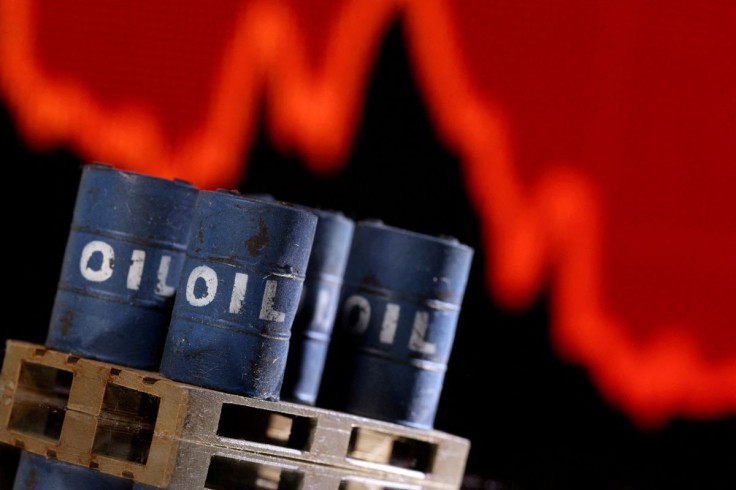Profits Of Oil Majors Are Sky High But They Are Too Much Of A Bad Thing

A record-breaking profit amassed by the world's largest oil companies due to the war in Ukraine has raised eyebrows as consumers worldwide are grappling with a worsening energy crisis.
Oil majors like Chevron, Shell, Exxon, and BP have been able to rake in huge money as the Russian war against Ukraine is lingering on. So, a few governments have turned their attention to the extraordinarily high profits in the energy sector and have imposed a windfall tax on them.
The war in Ukraine has provided a big bonanza for oil behemoths not just because of high gas prices, but they are also getting access to more public lands for drilling as governments are giving priority to energy security.
The Biden administration in the U.S. has granted oil and gas drilling permits at a higher rate than under the Trump era, though President Joe Biden has been against allotting more public lands for drilling during his presidential campaign. More than 80 million acres in the Gulf of Mexico alone have been set aside for drilling by the current U.S. dispensation.
Major oil firms had been awash with cash already before the conflict in Eastern Europe. According to the U.S. watchdog Accountable U.S., Chevron, Shell, Exxon and BP made over $75 billion in 2021, a record sum.
However, they did not at any point choose to cut prices for a beleaguered public during the wartime next year. Instead, they have opted to puff up dividends and CEO salaries, buying back their own shares and paying lavishly for lobbyists to demand cheap new federal leases.
Exxon earned $17.9 billion in the second quarter of the year, Chevron got $11.6 billion, and Shell earned $16.7 billion, accounting for more than triple each company's profit in the same period last year.
Because of a robust bottom line, Shell shares rose by 1.6 percent compared with a 1.3 percent gain for the broader European energy index (SXEP).
From its West Coast refineries alone, the U.S.-based Chevron managed to get a margin of $47.03 a barrel in the second quarter, which was $14.39 a year ago.
For BP, an FTSE 100 oil company, it was the second highest quarterly profit in history, behind only its $8.8bn profit in 2008.
During the second quarter, Exxon Mobil will spend $7.6 billion on dividends and share purchases. BP is planning to hand investors $3.5bn through a share buyback program, and has increased its total dividend payout by 10 percent to about $1.1 billion.
Shell and France's Total are planning to give shareholders billions of dollars in share buybacks and dividends. Norway's Equinor has also decided to boost share buybacks.
As the oil prices soared and the bottomline of oil majors swelled, governments have introduced measures to help people with energy bills, such as the discount doled out by the British government, following political pressure.
But oil companies are in no mood to cut their prices. "Clearly, to lower prices, the industry needs to increase investment and catch up to recovering demand," Exxon CEO Darren Woods said during an interaction with analysts.
"Unfortunately, this will take time," Woods added July 29.
In Chevron's home state of California, Democratic Gov. Gavin Newsom has come down heavily on large oil companies.
"These dirty companies are raking in massive profits - all while forcing us to pay more at the pump," Newsom said in a tweet.
UN Secretary-General Antonio Guterres also made a scathing attack on oil majors. "It is immoral for oil and gas companies to be making record profits from this energy crisis on the backs of the poorest people," Guterres said Aug. 3.
The United Kingdom imposed a windfall profit tax on oil firms. The belated response from the UK government is attributed to political pressure amid soaring energy prices. The oil firms in the UK will be forced to cough up £5 billion as windfall tax.
The tax applies to profit made in the UK from May 26 which is a small part of their operations for oil majors. For BP, it comes to a mere a tenth of overall oil and gas production.
Though in the US, Senator Ron Wyden (D-Ore.) has introduced a bill to raise taxes on American oil firms, it may be unlikely to get the green signal.
On July 1, the Indian government imposed special additional excise duty on the sale of locally produced crude oil. As the oil prices came down from $113 when the tax came to $97.34 per barrel, Indian oil companies are asking the government to roll back the windfall tax.
Several members of the European Union including Italy, Greece, Spain and Belgium, have slapped windfall taxes on oil firms.
Belgium has proposed a one-off 25 percent windfall tax. Spain is planning to collect €2 billion in fiscal years 2022 and 2023.
Italy was the first EU nation to make a move on windfall tax on oil firms after liberal Prime Minister Mario Draghi launched a special 10 percent tax on extraordinary profits in March.
As oil majors are doing brisk business because governments swear by energy security, global climate concerns have taken a backseat. A bad game goes worse.





